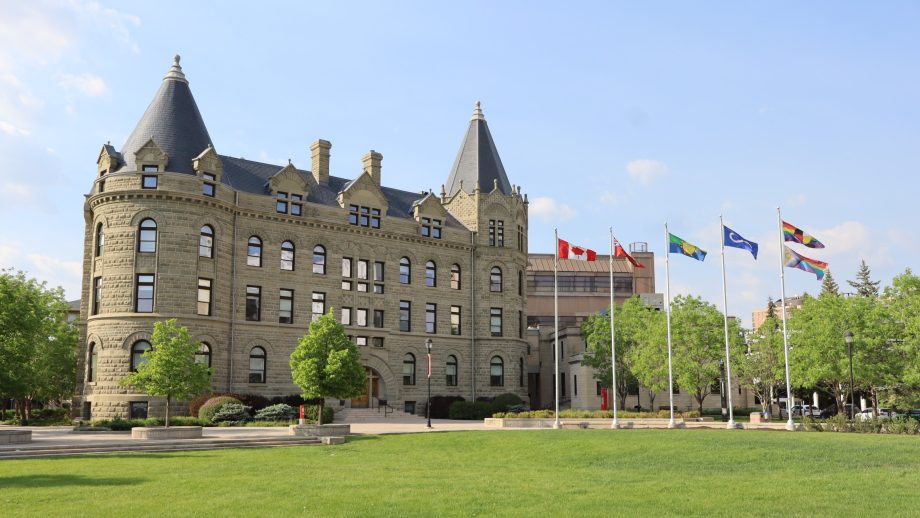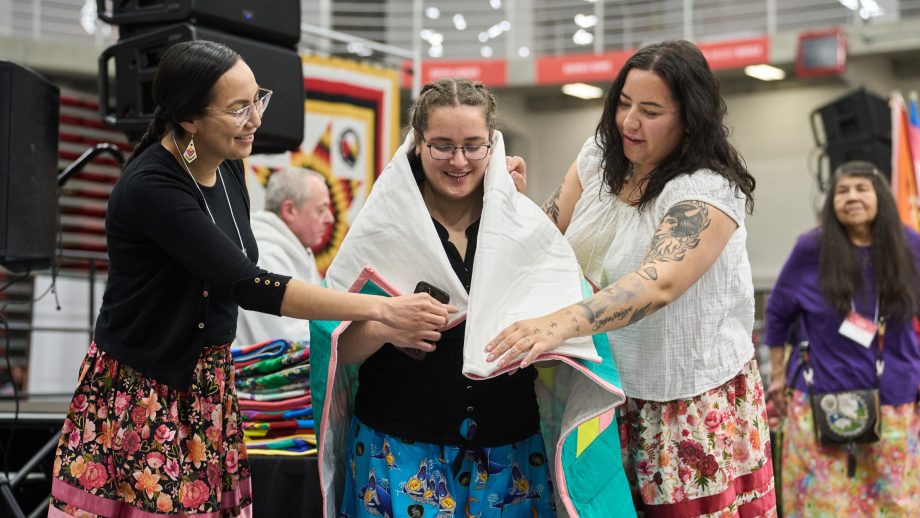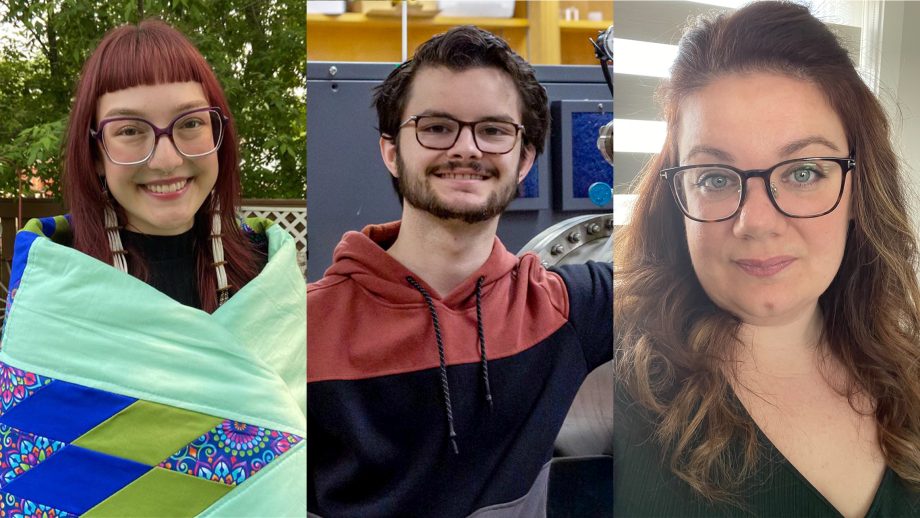WINNIPEG, MB –Two extraordinary individuals will deliver the Spring 2017 Axworthy Distinguished Lectures on Social Justice and the Public Good — former US intelligence officer and whistleblower, Edward Snowden, (May 9 via webcast) and eco-feminist, Dr. Vandana Shiva (May 25).
In addition, throughout May, leading international intellectuals will deliver lectures as part of The University of Winnipeg’s CLASS Spring Institute, including: renowned American activist, Angela Davis; globally-known Canadian Inuit activist and Nobel Peace Prize nominee, Sheila Watt-Cloutier; Canadian poet and writer Gary Geddes; former justice and chair of the Truth and Reconciliation Commission, Senator Murray Sinclair; global health champion, Dr. Rohit Ramchandani (via webcast); American environmentalist and economist Winona LaDuke; and Canadian philosopher and social critic Ian Angus. There will be limited free public seating at both Axworthy Lectures. Passes for the CLASS Spring Institute, which guarantees seating at all the lectures, will be available Thursday, March 30. Details and the speaker schedule are available here.
As UWinnipeg celebrates 50 years of nurturing global citizens, it is an ideal moment for the campus and broader community to reflect on 50 years of higher education, and to chart its course moving forward. The 2017 CLASS Spring Institute is designed to explore the relationship between the University and the Public Good.
BACKGROUND
With roots in medieval religious institutions in South Asia, the Middle East, and Europe, universities have long sought to engage the various elements of the human experience, ranging from theology and philosophy, to music, medicine, and law. In their more recent, secular iterations, universities have preserved the ideal of a broad-minded education with liberal arts traditions. Recently however, political suspicion of and even hostility towards the liberal arts and social sciences have raised pointed questions regarding the purpose of the university. Speakers from around the world will help us consider the purpose of the university in general, and in particular draw our attention to the role of institutions of higher learning in fostering a social climate of rights, reconciliation, and collective conscience, while pursuing research that furthers critical thought, sustainability, and public health.
The Centre for the Liberal Arts and Secular Society (CLASS) is comprised of University of Winnipeg faculty and students engaged in interdisciplinary research concerning secularism and secularization within the liberal arts.
SHORT BIOS
AXWORTHY DISTINGUISHED LECTURERS
Edward Snowden
Edward Snowden is a former intelligence officer who served the CIA, NSA, and DIA for nearly a decade as a subject matter expert on technology and cybersecurity. In 2013, he revealed that the NSA was seizing the private records of billions of individuals who had not been suspected of any wrongdoing, resulting in the most significant reforms to US surveillance policy since 1978. He has received awards for courage, integrity, and public service, and was named the top global thinker of 2013 by Foreign Policy magazine. Today, he works on methods of enforcing human rights through the application and development of new technologies. He joined the board of Freedom of the Press Foundation in February 2014. Edward Snowden will join the CLASS Spring Institute for a conversation live via web-link about mass surveillance and the role of universities as a critical public space for engaging the ethics of mass surveillance.
Dr. Vandana Shiva
Vandana Shiva is an Indian scholar, environmental activist and alter-globalization author. She trained as a physicist at the University of Punjab, and earned her Ph.D from the University of Western Ontario. Her work centers on issues of bioethics, biodiversity, intellectual property rights, and genetic engineering. She founded the Research Foundation for Science, Technology, and Ecology in 1982, which led to the creation of Navdanya in 1991, a national movement for the protection of biological resources, especially native seeds. Shiva’s work often celebrates the wisdom of traditional knowledge, such as Vedic medicine and farming practices, and she has criticized the practice of corporate seed patenting. She works to improve the situation of women in India, and is commonly referred to as an eco-feminist.
CLASS SPRING INSTITUTE LECTURERS
Angela Davis
Angela Davis is an American author, activist, and academic. She was an active participant in the Civil Rights Movement, leader/member of the Communist Party USA until 1991, and a professor at the University of California, Santa Cruz, as director of the university’s Feminist Studies department and part of the History of Consciousness Department. She is now a Distinguished Professor Emerita and a member of the Committees of Correspondence for Democracy and Socialism. Her academic work focuses on feminism, racism, Marxism, critical theory, and “prison-industrial complex” in the United States, which she argues resembles a new form of slavery rather than a criminal justice system.
Senator Murray Sinclair
Senator Murray Sinclair served in the Manitoba justice system for over 25 years. He was appointed Associate Chief Judge of the Provincial Court of Manitoba in 1988 and to the Court of Queen’s Bench of Manitoba in 2001. He was Manitoba’s first Aboriginal judge, and was known for his representation of Aboriginal people and his knowledge of Aboriginal legal issues. He served as Co-Chair of the Aboriginal Justice Inquiry in Manitoba and as Chief Commissioner of the Truth and Reconciliation Commission (TRC). As head of the TRC, he participated in hundreds of hearings across Canada, culminating in the issues of the TRC’s report in 2015. He served as an adjunct professor of law at the University of Manitoba, and has won numerous awards, including the National Aboriginal Achievement Award, the Manitoba Car Association’s Equality Award (2001) and its Distinguished Service Award (2016). He was appointed to the Senate in April 2016.
Winona LaDuke
Winona LaDuke is an internationally renowned activist working on issues of sustainable development, renewable energy, and food systems. She lives and works on the White Earth reservation in northern Minnesota, and is a two-time vice presidential candidate with Ralph Nader for the Green Party. As Program Director of Honor the Earth, she works nationally and internationally on the issues of climate change, renewable energy, and environmental justice with Indigenous communities. In her own community, she is the founder of the White Earth Land Recovery Project, one of the largest reservation based non-profit organizations in the country, and a leader in the issues of culturally based sustainable development strategies, renewable energy, and food systems. In this work, she also continues national and international work to protect Indigenous plants and heritage foods from patenting and genetic engineering.
Sheila Watt-Cloutier
Shelia Watt-Cloutier is a Canadian Inuit activist, Nobel Peace Prize nominee, and political representative for a number of issues affecting Inuit people, including persistent organic pollutants and global warming. She was the chair of the Inuit Circumpolar Council from 2002-2006, an international organization that protects the rights of Indigenous peoples in the Arctic Circle, in Canada, Russia, Alaska, and Greenland. In 2005, she launched the first international legal action on climate change: a petition to the Inter-American Commission on Human Rights which argued that excessive emissions of greenhouse gases from the US have violated Inuit cultural and environmental human rights according to the Universal Declaration of Human Rights. Watt-Cloutier is an Officer of the Order of Canada. She is the recipient of numerous awards including: the Aboriginal Achievement Award, the UN Champion of the Earth Award, the Norwegian Sophie Prize, and the Right Livelihood Award. Watt-Cloutier is also the author of the 2015 memoir, The Right to Be Cold: One Woman’s Story of Protecting Her Culture, the Arctic and the Whole Planet. The book was nominated for the 2016 BC National Award for Canadian Non-Fiction and recently was shortlisted for CBC Canada Reads 2017.
Gary Geddes
Gary Geddes is a Canadian poet and writer, who taught English and Creative Writing at Concordia University from 1978-1998, and was appointed Distinguished Professor of Canadian Culture at Western Washington University (1998-2001). He was awarded an Honorary Doctor of Law degree from Royal Roads University. Geddes’ work often focuses on the environment and human rights issues, and he has investigated and written about the Chilean dictatorship, the Nicaraguan civil war, and Israel & Palestine following the Oslo Peace Accord. Most recently, Geddes has written Medicine Unbundled: A Journey Through the Minefields of Indigenous Health Care, which explores the history of the segregated Canadian healthcare system through interviews with Indigenous Elders.
Rohit Ramchandani
Dr. Rohit Ramchandani is Founder and CEO at Antara Global Health Advisors, a Canadian consultancy that provides technical expertise and evidence-based public health and management advice to organizations around the world. He is Public Health Advisor and Principal Investigator at ColaLife, a globally renowned initiative focused on improving access to essential medicines like ORS and Zinc for childhood diarrhea by leveraging the Coca-Cola supply chain. His work has been highlighted on the CBC, BBC, Business Week, Development Asia Magazine, TED, and very recently with a Transformational Business Award in Health from the Financial Times and International Finance Corporation. He is a member of the United Nations Innovation Working Group, the WHO Collaborating Centre for Governance, Transparency and Accountability in the Pharmaceutical Sector based at the University of Toronto, serves on the global Diarrhea and Pneumonia Working Group, sits on the Board of Directors at the Jane Goodall Institute of Canada and is an Adjunct Assistant Professor at the University of Waterloo’s School of Public Health and Health Systems. Ramchandani’s current interests lie in the areas of global health delivery & access, health systems, multi-sectoral partnerships, innovation and human-centered design, and large-scale evaluation. https://vimeo.com/ondemand/thecolaroad/61315023
Ian Angus
Ian Angus is the author of Love the Questions, which is a provocative look at the central questions facing university education today. Drawing on decades of experience in the scholarly trenches, Angus’ research on the university considers the future of academic freedom in an increasingly corporate university setting, the role of technology, interdisciplinary study, and the possibilities for critical enlightenment and solidarity. Ian Angus is Professor of Humanities at Simon Fraser University in British Columbia. He taught previously at the University of Massachusetts at Amherst, University of New Hampshire, and Trent University. He has authored numerous books, including Technique and Enlightenment (1984), (Dis)figurations: Discourse/Critique/Ethics (2000), Primal Scenes of Communication (2000), Emergent Publics: An Essay on Social Movements and Democracy (2001, A Border Within (1997), Identity and Justice(2008), and The Undiscovered Country (2013).
UWINNIPEG PANELISTS
Dr. Annette Trimbee
Dr. Annette Trimbee assumed the role of President and Vice-Chancellor at The University of Winnipeg on August 1, 2014. Key accomplishments include completing a university-wide strategic directions plan, the introduction of a three-year budget strategy; and development and approval of the Indigenous Course Requirement for all undergraduate students, among the first in Canada. In May 2016, Trimbee was appointed to the board of Manitoba Hydro where she shares her knowledge and expertise in water management and energy policy. Previous to this role, she was a Deputy Minister of several departments in the Alberta government, including Finance and Treasury Board, Service Alberta and Advanced Education and Technology. She holds a BSc from the University of Winnipeg, an MSc from the University of Manitoba and a PhD from McMaster University in Ecology and a Post-Doc in aquatic ecology from the University of Alberta.
Dr. Carlos Colorado
Dr. Carlos D. Colorado is Associate Professor and Chair of the Department of Religion and Culture at The University of Winnipeg. His research examines secular culture, focusing on intersections of political power, identity, social justice, language, and religion in its public manifestations. He is an expert on the work of Canadian philosopher Charles Taylor. Colorado is a founding member and Acting Director of UWinnipeg’s Centre for the Liberal Arts and Secular Society (CLASS), and coordinator of the Axworthy Distinguished Lecture Series on Social Justice and the Public Good, which engages contemporary issues involving gender, religion, Indigeneity, language, race, ecology, and economy. Colorado also serves as the Chair of the Board of Directors of the Jane Goodall Institute of Canada.
MEDIA CONTACT
Diane Poulin, Senior Communications Specialist, The University of Winnipeg
P: 204.988.7135, E: d.poulin@uwinnipeg.ca




